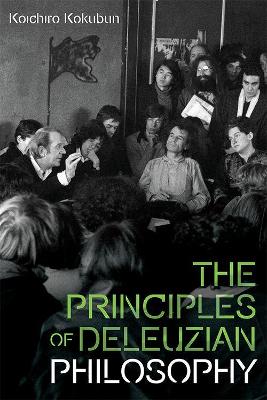Plateaus - New Directions in Deleuze Studies
1 total work
What gives us the right to speak of a Deleuzian philosophy, a philosophy at first sight concerned solely with interpreting other philosophers and writers? Koichiro Kokubun focuses on Deleuze's method of 'free indirect discourse' to locate and explicate Deleuze's philosophy of transcendental empiricism and its constitutive limits. Working through Deleuze's confrontations with Hume, Kant, Bergson, Freud, Lacan, Foucault and Guattari, Kokubun uncovers a philosophy strongly influenced by structuralism and psychoanalysis, which had to overtake these movements because of its practical ambitions. Kokubun concludes with a radical revitalisation of the political potential of this philosophy.
